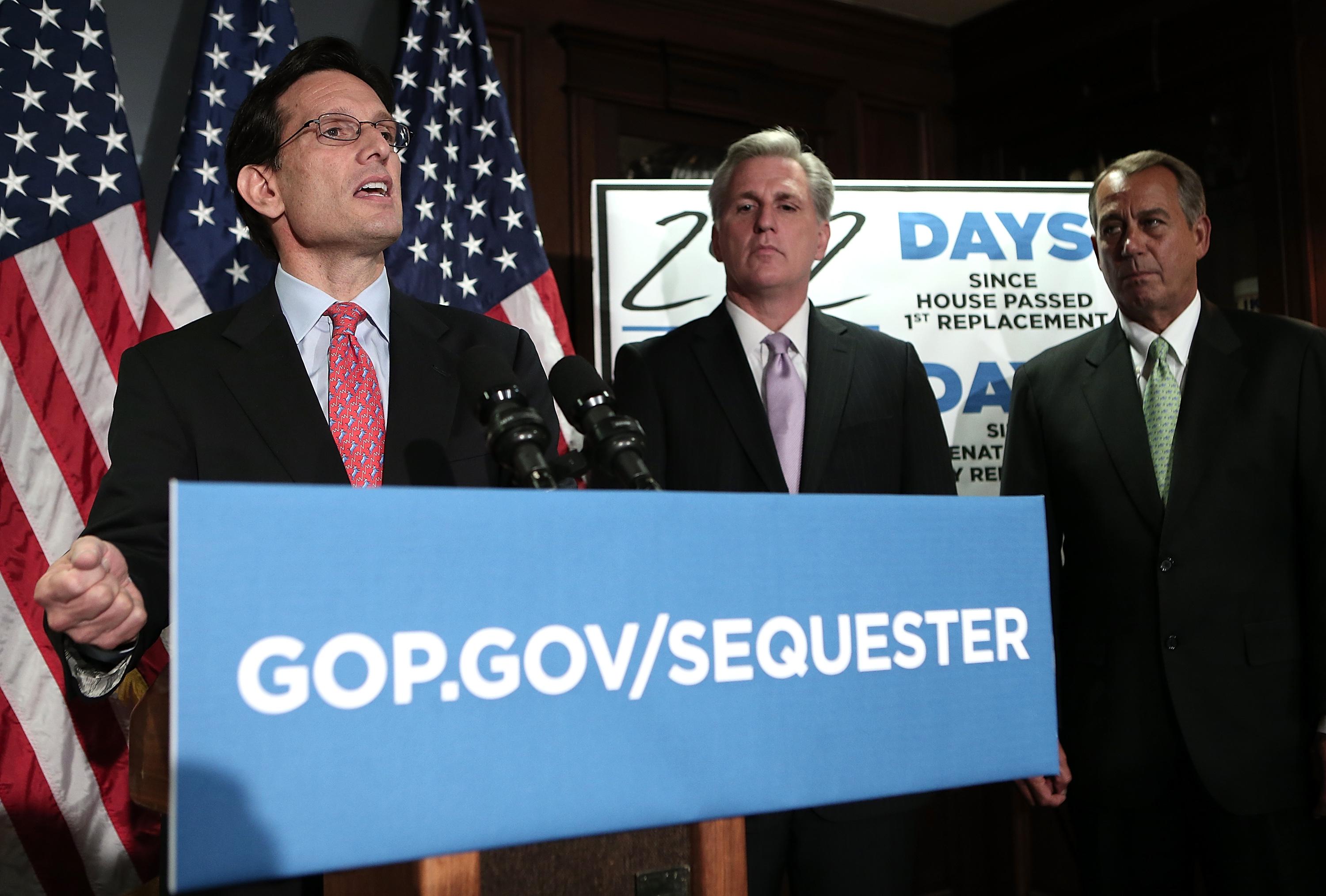In today’s GOP leadership presser, Rep. Eric Cantor tweaked a line that Mitch McConnell has been using for weeks. The fiscal cliff deal included a tax increase. Thus, there was no more need for tax increases. “There have been four years of spending increases,” said Cantor, “and now the president says we can’t have any progress on the sequester unless he gets a second tax hike in eight weeks.”
We’re forgetting a sublime, ridiculous fact about that fiscal cliff deal. By law, on January 1, tax rates rose to pre-Bush levels. Later that day, when the president signed the deal, the rates “lowered” again—only the top rate was hiked to 39.6 percent. In order to defend their tax cut bona fides, Republicans pretended that the deal amounted to a tax cut.
This spin got around. “After more than a decade of criticizing these tax cuts,” said Rep. Dave Camp, chairman of the tax-writing Ways and Means Committee, “Democrats are finally joining Republicans in making them permanent. Republicans and the American people are getting something really important, permanent tax relief.” Grover Norquist, blamed and demonized by the media for holding Republicans accountable on taxes, argued that “the Bush tax cuts lapsed at midnight last night,” so “every [Republican] voting for [the] Senate bill is cutting taxes and keeping his/her pledge.”
But that was eight weeks ago. Now it’s in Republicans’ best interests to pretend that they met the president halfway and raised taxes. Forget about moving the goalposts. This is pulling a Criss Angel on the goalposts and making them disappear.
